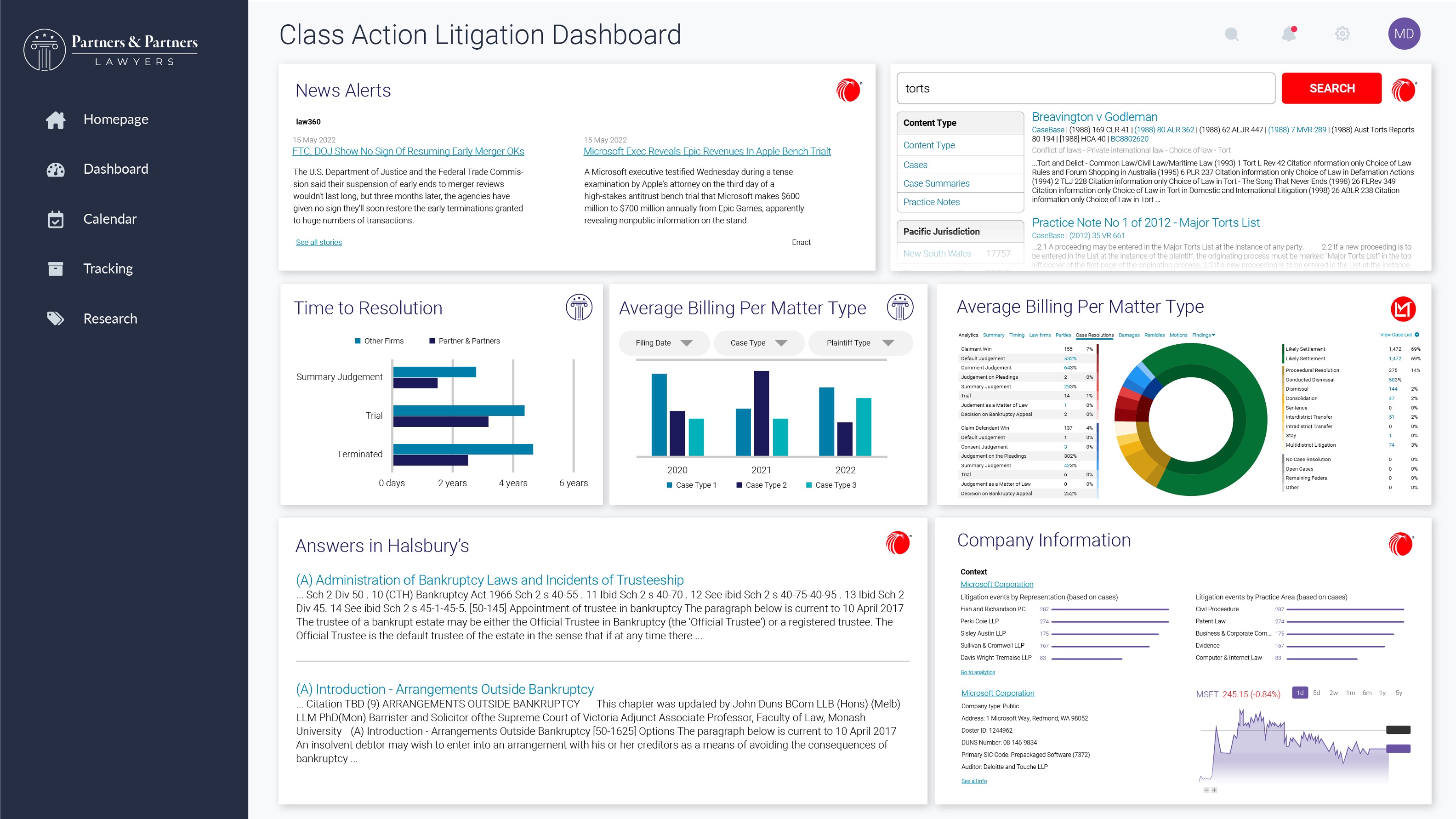Web Services API | KeyNews June 2023 Edition
15 June 2023 10:00
The legal industry is on the brink of a digital transformation that will define what the law firm of the future looks like. A key facet of this transformation will be to streamline business processes and workflows to remain efficient, competitive and profitable in the long run. One of the simplest ways to make the technology landscape more efficient is by using APIs. The ability to create a cohesive content ecosystem through seamlessly integrated workflows will help legal practitioners provide a holistic client experience through any device and from anywhere.
An API (Application Programming Interface) is an interface (a set of commands) that lets you pull content directly from a server, in order to make use of it in some other application or context. We all make use of APIs every day, in applications that pull geographic information from Google Maps, weather information from the Australian Bureau of Meteorology, stock ticker information from Yahoo Finance, and many more.
The LexisNexis Web Services API toolkit provides an interface that allows you to make direct requests to the LexisNexis data services, bypassing the Lexis Advance web application entirely.

This illustration is a mock-up only and does not necessarily reflect the final product. The user experience and content display will depend on many factors, such as the specific requirements, the complexity of the API queries and the extent to which content can be surfaced.
You can use the API toolkit to:
- Create a customised workflow ─ Add a simple search box to your Intranet Portal or Practice area pages to surface search results directly from us;
- Integrate with your data ─ Add information from your Firm’s document management systems to the custom-built workflow to get more cohesive results;
- Be aware of changes ─ Use the APIs' alerting capabilities to stay informed of changes and the impact of regulations or key aspects of the Law most relevant to your matter on a real-time basis;
- Enrich your data experience ─ Ensure you have the most recent and marked-up search results from your content provider along with the firm data you are using in your task;
… all from within your own workflow, intranet, DMS (Document Management System), or library management systems.
The API returns resources (results lists, documents, tables of contents, etc) in JSON and XML formats. All the required structural and semantic information is present, unburdened of any verbose and representation-specific markup. This means smaller files for faster performance, and the freedom to style, present, transform and integrate the content into your internal workflow and DMS to suit your lawyers’ specific needs. The API uses widely accepted technical standards* to maximise interoperability with a wide range of internal systems used by our customers.
If you would like to know more or explore how we can integrate content from Lexis Advance into your organisation’s working environment, please contact your Relationship Manager.
* The API uses the OAuth 2.0 framework for authentication and exposes resources using REST-based data services based on the OData 4.0 protocol.
** Some LexisNexis content may not be available via Lexis Web Service APIs. Contact your Relationship Manager for more details.
Other News Articles
-
Appointed in September last year, Korea Fair Trade Commission Chairman Han Ki-jeong had plenty of insights to share with global news provider MLex® in an exclusive interview last month, talking Big Tech, how to make antitrust enforcement fairer, the growing appetite for criminal cases, and more.
-
A year on since taking office, the Albanese Government's 2nd Budget walked a thin line between sensibility and generosity, unveiling measures designed to grow the Australian economy, resist global financial shocks, and support the vulnerable through hardship.
-
Lexis Argument Analyser has added a new co-citation feature, which together with the existing case recommendations, will help you identify the key cases in your matter faster. Co-citations are cases that are commonly cited together or that share many common citations.
 LexisNexis
LexisNexis